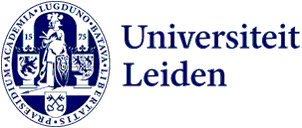
Wouter Linmans: 'The Netherlands did see World War II coming'
On 10 May 1940, the Netherlands was taken completely by surprise by the attack of the German army. Wasn’t it? In his dissertation, Wouter Linmans debunks the idea that the Second World War took the Netherlands by surprise. ‘From 1935 onwards, all major political parties wanted to invest in the military.’ He will obtain his PhD on 20 May.

After the Second World War, historians such as Loe de Jong shaped the image of the Dutch capitulation. The Netherlands is said to have relied so much on its neutrality during the First World War that the invasion by German troops was unexpected.
Reasoning backwards
‘I thought those historians were arguing too much in retrospect,' says Linmans. ‘The occupation of the Netherlands happened so quickly, the attack must have been unexpected. The interbellum was viewed from that perspective. I wanted to approach it in a different way. Of course, you know what happened in May 1940, but if you look at the sources chronologically, you can describe what the Dutch expected of the future.’
Afraid of repetition
Using digital databases, he searched for cultural expressions that included war-related topics. This varied from newspaper analyses to science fiction films. ‘Because a lot has been digitised in recent years, I could cast a wide net. I was also able to include local sources such as the Limburger Koerier and the Leeuwarder Courant (local newspapers ed.), which enabled me to paint a rich cultural-historical picture of the Dutch vision on an approaching war.’
It turns out that the Netherlands did take an attack into account. ‘During the interbellum period, we could see a strong case of pillarisation, so there is no such thing as one Dutch vision. Sometimes ideas are even diametrically opposed. You do see, however, that in general the First World War had left deep scars. In the Netherlands too, people were afraid of more of that kind of atrocities.’
Broad call for investment in defence
This fear expressed itself in various ways. In films, plays and stories, for example, 'death rays' appear: electromagnetic rays that would form a new and deadly weapon. That weapon never materialised, but sources also reveal more realistic fears. ‘Especially within military circles, people were well informed about what was going on abroad and early on there were calls for investments in defence', says Linmans. ‘On the other hand, there was the political left, which had long regarded the army as a waste of tax money. Around 1935, they made a striking switch by saying that more money had to be spent on defence because of the imminent war. From then on, all political parties were in favour of preparing for a new war.’
‘Maybe it won’t be that bad’
So where does the image of a surprised Netherlands come from? According to Linmans, it has its roots in the months before May 1940. ‘When the war started in September 1939, the Netherlands was not involved. That caused surprise and relief. The terrible expectations that people had had, did not come true. They slowly began to believe that they would get by unscathed. I'm not a psychologist, of course, but I think it's a very human reaction to hope that things will turn out fine after all.’
